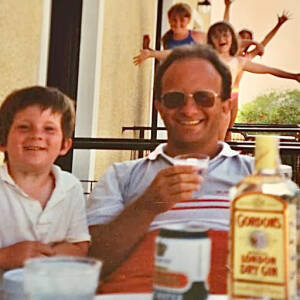Hare Hill House
I was walking on a narrow footway beside a road today, where the speed limit is 30mph but even that is probably too fast. A car came towards me, at about 45mph, very close to the kerb. I gestured at the driver to slow down. He swerved out and careered on. On the rear window of the car a large sign: "Thanks NHS."
Reggae seemed necessary on a sunny day. I listened for the first time to Bunny Wailer's 1977 album "Protest" on which my favourite song was Who Feels It.
Another French painting today - completed in 1739, François Boucher's The Breakfast shows a small family being served. It is to modern eyes an unsurprising scene of a nuclear family having a traditional start to the day. But its historical context shows it to have been a radically new custom.
Breakfast was a French invention of the 18th century. Louis XV was the first king to have bread and a hot drink in the morning. His royal predecessors started the day with dinner at around 10am. The fashion spread. Drinks such as tea coffee and, in this painting, hot chocolate (identified by historians from the size and shape of the pot being used) were sold from public houses and by itinerant traders. This bourgeois family were therefore right up-to-date.
The small room was also an innovation. Traditionally, wealthy and bourgeois people lived in buildings with small numbers of very large rooms, which were also difficult to heat. The trend towards more, very intimate and cosier spaces was quite new. The particular room in the painting was a boudoir - which was a room situated between a lounge or salon and a bedroom. Boudoir is taken from a verb meaning to pout or sulk. It was a room to which one could withdraw from company in the lounge or move into from bed.
Most surprising are the presence of small children with their parents in an affluent, Parisian home. In the 18th century, children were regarded as not yet people. Many died in infancy. The survivors were "brought-up" by fairly harsh training to become like adults. Childhood, as such, was not greatly valued.
In particular, in Paris, the vast majority of children would be sent away from home, often to the countryside where they were brought-up and then schooled by strangers. A police survey in 1780 reported that 21,000 children were born in Paris each year. Of those, 700 were nursed by the own mothers - being the very poor. Another 700 were looked after by a wet nurse in the parental home - those being the very rich. 17,000 were sent away to the country by their parents. The remaining 2600 were abandoned at birth.

Comments
Sign in or get an account to comment.


